|
I finally did it! I finally read Twelve Rules For Life by Doctor Peterson. I was already quite familiar with his thoughts from his podcasts and interviews, so it was hard to read the words with an unbiased mind. I suspect I have read into them more than is there.
One takeaway was that the chapter titles only barely fit the content. Peterson rambles quite a bit from subject to subject, as if he is attempting to put all his knowledge into one book. Another thing I noticed is how the end of one chapter tends to flow nicely into the next, the illustrations between them somehow fitting both themes equally well. The basic lessons are as follows: Stand up straight with your shoulders back. Treat yourself like someone you are responsible for helping. Make friends with people who want the best for you. Compare yourself to who you were yesterday, not to who someone else is today. Don’t let your children do anything that makes you dislike them. Set your house in perfect order before you criticize the world. Pursue what is meaningful (not what is expedient). Tell the truth – or at least don’t lie. Assume that the person you are listening to might know something you don’t. Be precise in your speech. Do not bother children when they are skateboarding. Pet a cat when you encounter one on the street. While I either learned these lessons long ago or else never had the problems in the first place, so I didn’t get a lot out of it, I believe the book can be most helpful to those who are trapped in guilt and low self-esteem. Some people bury their anger instead of dealing with problems because they think it is virtuous to do so. Some people won’t take their medication because they think they don’t deserve to get better. Some people greatly inconvenience themselves to please others, and when the others don’t recognize their efforts enough, they become resentful. Those are the people that need the book. While I think Peterson has great advice, in some areas I know it will break down. Some people have so much chaos in their lives that they can’t possibly fix it all at once. Peterson says to start small, even as small as cleaning one’s room. As one masters one level, the next will become easier. I know two problems with this plan. First, I know from experience that habits long mastered can suddenly be lost overnight. Learning them again is impossible when they have already been learned. One just has to wait for them to return – which does occasionally happen. Second, if one is to clean up their lives, they must be clean themselves. Otherwise, they will dirty what is clean even while they clean what is dirty. At best, they will move the “dirt” around. Only an outside force can save them. This is precisely why people need Jesus. This is lacking in Peterson’s plan. Another problem I have is his assumptions about status. He assumes that standing hunched over is a sign that we know we are low status. I can think of many other things it could be, such as being lost in thought. I also have trouble applying the principles to my life since there have been many times I have received mixed signals about my status and there is so much disagreement over values. There have been times I believed the world so arbitrary that concepts like status hierarchies didn’t apply. I also find his theory on the origins of evil to be lacking. It has three parts: First, he suggests that human young (like other animals) must probe the limits of their social environment by breaking the rules. This includes violence. Antisocial habits are the default and it takes continual effort to maintain culture-appropriate habits. Second, he suggests that when early humans became self-conscious, they realized their own vulnerability, especially related to the way we walk upright with our soft parts exposed. This made them anxious and looking for a way to defend themselves (including by pre-emptive strikes on others). Extrapolating, they also understood the vulnerability of others and were capable of directed torture. He relates all this to the Genesis story of Adam and Eve eating the fruit and discovering nakedness. Third, he suggests that malevolent evil (as opposed to selfish evil) arose as a way of taking revenge on God for the inadequacies of his creation. Since God cannot be reached directly, the vengeful instead attack that which God values, thus making creation even worse. Since in another part of the book Peterson defines God as that which we value above all else, this also means that the vengeful will destroy anything that reminds them of their ideal. My objections: First, studies show human young also show altruistic instincts even before they could have learned them, so bad habits being the default cannot be the whole story. Second, while humans might be more vulnerable than the average animal, there are many vulnerable animals, and all animals have some vulnerability. Why aren’t there other evil animals? Third, I also do not understand what is hoped to be gained by taking revenge on God (or anyone else), especially if it will end up furthering and adding to the same sort of problems that inspired the malevolence in the first place. If evil is caused by revenge, what causes the drive to revenge? Self-defense and deterrent punishment is understandable, but why hurt another merely because they deserve it? Other criticisms of mine were later answered, either in the book or in what I heard him say before on YouTube. When attacking the idea of charity because it is often done out of a savior complex, he takes care to warn us not to use his words as an excuse not to help. When speaking of those of high and low status, he acknowledges that there are multiple hierarchies, and those doing poorly in one might do better in another. When telling us to set our house in order before we criticize the world, he is careful to warn us not to use our continuing minor imperfections as an excuse not to act when action is necessary. On YouTube, I often only heard the first half of his thoughts, and I sometimes wish he was clearer. He also already understands part of the point of my book, When Nothing Seems To Work (which he has never read), the philosophy I call fix-it-later-ism. On page 201, he writes: “Meaning happens when that dance has become so intense that all the horrors of the past, all the terrible struggle engaged in by all of life and all of humanity to that moment becomes a necessary and worthwhile part of the increasingly successful attempt to build something truly mighty and good.” The book is full of ideas on a wide variety of subjects that I could not possibly cover in this review. You’ll have to read the book. A couple of the more interesting ones include the idea that the temptation of Jesus in the desert was to avoid setting the precedent of relying too heavily on supernatural means to win. God needed limitations for a story and we needed a relatable savior. Another is his theory of the origins of religious sacrifice. He thinks that trading with others led to trading with one’s future self by storing resources, which led to the idea of “sacrificing” effort and time now for the future to repay. This seems to me like quite the stretch and I wonder why this hypothesis is needed when a simple common sense understanding of object permanence should suffice to explain the origins of work without relating it to religious ideas at all. Why did people start putting animals on altars? Overall, five stars.
0 Comments
Lips are the primary organs used in kissing, an activity commonly associated with romantic entanglements, yet they are not considered sexual organs. Hands may caress, and eyes may gaze, but neither hands nor eyes are considered especially sexual either. In contrast, breasts – the primary purpose of which is to nourish the young – are considered “sexual” organs.
I recently read Don’t Burn This Book by Dave Rubin (2020). I had watched his show, the Rubin Report, quite often, so I already knew a bit of what he thought of current events, but I never found a complete account of his awakening to the truth of what was really going on. How is it possible for a leftist to change? Can it be replicated? How does one become a leftist in the first place? These are questions I have never found good answers to and I hoped this book would shed some light on these issues. It did not.
Another thing he has mentioned on his show that I was led to believe would be explained in the book was his concept of “factory settings.” What this means is that we all have default worldviews (based partly on culture and the dominant media) until new evidence overturns them, but only if we are open-minded. While the term was briefly mentioned in the book, it was never explained and only the most vague examples were given. One example from the book is that socialists are generous and capitalists are greedy. To paraphrase Thomas Sowell, I have never understood why wanting to hold on to your own hard-earned money is greedy, but wanting to take money from someone else isn’t. My “factory settings” are to think of socialists as greedy. How is it possible that others have different settings? This is what I still don’t understand. One example from his show is “Republicans are for war, Democrats are for peace.” I thought this was a strange example too, since we are the same age and would have grown up during the same events. I grew up thinking that Republicans were the anti-war party. Bill Clinton got us into Bosnia and Kosovo, fired into Iraq in 1998, and bombed an aspirin factory in Sudan, and at every step the GOP claimed we had no legitimate national security interest to be involved. They cast Clinton as a warmonger. Who thinks Democrats are the party of peace? Related to both of these issues is the idea that the “mainstream media” is anti-conservative. This is something that almost every conservative says often. It is an unfortunate term, because it occludes the truth: The “mainstream” media isn’t mainstream anymore and hasn’t been for decades. Hardly anyone watches antenna television. It was replaced by cable and cable is currently being replaced by decentralized platforms across the internet. Even as CNN and MSNBC have embraced insanity, FOX has been by far the largest cable news outlet in terms of viewers. There are claims that YouTube censors content, and that might be true, but I have always had a harder time finding pro-Democrat channels than pro-Republican channels. Ben Shapiro is everywhere. Then there are claims that entertainment media pushes leftist ideas on us, and there are a few examples of this, but the reason that we talk about them is because they stand out so clearly against the backdrop of a pro-conservative storyline. If conservatism is nothing more than common sense truth and leftism is incoherent, self-contradictory garbage (exactly how conservative thinkers present it), then it is clear that conservatism dominates media, since most plots make sense. Another issue I have with Rubin (and most of those he interviews) is his use of the terms “liberal,” “leftist,” and “conservative.” Something I’ve observed in life is that such words have no agreed upon meaning. For example, conservatives tell me it is liberals that are racist, while liberals tell me it is conservatives that are racist. However, I believed there was a rough consensus that whatever “liberal” meant, it was the same thing as “leftist” and “progressive” (whatever those mean). Today, Dave Rubin, Tim Pool, Dennis Prager, and others call leftist what I used to call liberal, and call liberal what I used to call moderate, pragmatic conservativism, separating it from the barely-distinguishable idealist conservativism. Sometimes Rubin will also call himself a “classical liberal,” a term that is difficult to apply to today’s world and one that conservative commentator Rush Limbaugh also once claimed for himself. “Leftism” as Rubin defines it is not new. The average Democrat has been leftist (and not at all liberal) since before I was born. The terminology used on the show is very different than what I grew up with. It’s all very confusing. Another issue I have with Rubin is his belief that most people are not leftists, but are holding back their voices out of fear. Repeat guest Jordan Peterson says the same. This has not been my experience. I see no shortage of anti-leftist sentiment being expressed. For every woke SJW, there are ten red-pilled meme lords to mock them. The truth is everywhere. You can’t avoid it if you try. If people are still blinded by leftist lies it is only because they choose to be. They are without excuse. So far, I have been reviewing the Rubin Report rather than Don’t Burn This Book. So what is Don’t Burn This Book about? The book quickly runs over Rubin’s opinions on the big issues, such as abortion and guns. His opinions are very moderate and commonsense. Where I disagree with him is mostly because I think he has oversimplified things, rather than him being totally wrong. The book also briefly covers a few of the major hoaxes to make it into the news, such as Russian collusion, the Covington kid, and Jussie Smollett. You can’t trust the news. The book also gives some life advice, such as: Get news from multiple sources. Look up the original sources. Read books rather than blogs. Think critically. Get the full context of quotes. Don’t be afraid to admit you don’t know something. Dress like the person you want to be. Religious stories give societies cohesion. Most people need to have children to feel fulfilled. Laugh often. You can change the world, but change yourself first. Live unapologetically without compromise; be all you can be. Speak out. If the news outlet always supports one side over the other, it’s probably propaganda. Finally, he ends with the thought: “The only way to combat this crisis is to get on with our lives as if there isn’t one.” Considering the left’s eagerness to use violence and the court system’s eagerness to violate the law, I am very skeptical that “getting on with our lives” will be allowed, but I’ll concede that attempting to do so might be the least bad option. Let’s hope he’s right, because that’s exactly what I’m going to do. There live among us those who dislike chocolate, or coffee, or pickles, but we accept them and understand that we all have different tastes. There live among us people who are unusually afraid of snakes or spiders, but we recognize that we are all a bit uncomfortable around animals we can’t control. There are those among us who are creeped out by perfectly innocent clowns, but we turn around and blame the clowns for being creepy. Then there are those among us that are uncomfortable around those who openly discuss or practice homosexuality. These people are derided as hateful and prejudiced, their businesses boycotted, their jobs terminated, and their opinions censored.
I visited Circle B Bar Reserve in January of 2023. However, I saw no circles, no bees, and no bars. The park is a chaotic collection of dry grassy areas, dry wooded areas, wet grassy areas, and wet wooded areas. On the border of Lake Hancock are tall cypress trees that allow long shafts of sunlight through the hanging moss onto the cloudy water below. It has all the right combinations of hiddenness and openness that make me want to dress up like an alligator and live there. In a few places, the path runs along waterways filled with birds. I saw cormorants, ducks, anhinga, wood storks, ibises, little blue herons, great blue herons, sand hill cranes, and many others I do not know the names of. These gallinules walked right up to me. I also saw these strange-looking pieces of rubber on the sides of the path, sitting perfectly still. Did someone blow out their tires and then dump them here? I counted ten total. There were even more tires floating in the current! Who keeps littering? Finally, I saw this wooden animal with its head poking above the water. It didn’t seem bothered by the swimming tires at all. I should be more like this animal.
This is a poem I wrote in 2022. I imagine it roughly to the tune of Maria by Blondie. I see her up on stage And think of all the wars in her name I’ll wage Conquer the ants, destroy the flies But she always slips away Before I can think of what word to say I wonder how I’ll ever catch her eye Ariah, she is on fire A distant quasar burning bright Ariah, I just want to say hiya I want to know what’s on your mind She is a mystery I only know about her what I can see Spicy pepper apple pie I wonder if she’ll like this song And I wonder too if I’m doing wrong But I still have to try Ariah, she is on fire Both summer day and starry night Ariah, I just want to say hiya And ask if I can come on by Ariah, she is on fire A mythical siren in the choir Ariah, I just want to say hiya I’m hoping that you can spare some time I was busy writing books and stocking shelves part time, so I didn’t get out much last year. I did walk around the neighborhood and see some insects, a bicolor leaf, and mysterious ruins. Here are some other things I saw throughout the year:
I recently read Jesus Freak by Sandy Holly (2017). It is a memoir of her time living in a heavily-Mormon neighborhood in Utah and how she came to take her Christian faith more seriously. She doesn’t explicitly say it, but reading between the lines I gather that the combination of being surrounded by lost souls desperately trying to live up to an unattainable standard and being manipulated by the priesthood, being judged for her freedom in Christ in the way she lived, being surrounded by people who didn’t like crosses, being reminded of her childlessness by a culture that highly valued large families, and her discovery of new forms of worship music at the Methodist church 20 miles away all conspired to drive her deeper into the arms of Jesus.
The second half of the book really shows her bubbly personality as she gets excited about everything. You can almost feel the love in the pages. You can tell that God has done much for her. It starts on page one hundred when she meets the Mormon missionaries and explains that we must wait on the Holy Spirit’s leading and not do things merely because we are expected to. Some doors are not safe to knock on. Some strangers are not receptive to the Gospel. She also goes on to explain that we don’t need to perform because we have already been rescued by Jesus and that cleaning out our old emotional baggage isn’t just relieving; it also makes more room for more Jesus! Everything is Jesus, Jesus, Jesus, but what else would one expect from a Jesus freak? The first half of the book is less interesting. I also wondered at times whether she was imagining persecution where there was none. She always thought she was being judged for her bare shoulders, her cross jewelry, and her coffee pots, but I never saw a clear example. However, just because she can’t remember one good example doesn’t mean there aren’t ten more half-remembered examples that can’t all be pure imagination. I’ve got the same problem with some of my writings. I also thought she was taking it completely the wrong way when she heard a religious joke I thought was pretty funny. I learned much I did not know before. I always thought Mormons were basically Christian, in that they believed Jesus was God made flesh who rescued them from sins, but added a lot of stuff most Christians would think weird, such as prohibition of coffee, post-death baptism, people becoming Gods, and magic underwear. I was extremely surprised to find that they were offended by Easter and the cross, and had their own version of the Bible in addition to the Book of Mormon, with many books rewritten. This makes them sound distinctly non-Christian. I don’t know what to think now. I was also intrigued by her déjà vu theory. She proposes that when we see a familiar person or place that we should not remember, that this is actually us recognizing Jesus in them. I wonder if this is what Bush saw when he looked in Putin’s eyes. I’m not convinced. It’s a quick, light read if you like uplifting memoirs of spiritual growth. Very few suggest that divorce should be illegal, but many recognize that a union carrying an expiration date from its inception is not a true marriage. Very few suggest that promiscuity among consenting adults should be illegal, but many recognize that a union of more than two individuals is not a true marriage either. Very few suggest that homosexual relationships should be illegal, but when it comes to whether homosexual unions are true marriages, we cannot seem to agree. It is one of the great debates of our time. Explaining the inherently heterosexual nature of romantic love to a homosexual is like explaining color to a blind man, except of course, that when insisting on the existence of color, nobody ever accuses us of being blindophobic.
French vanilla latte? In December 2022, I visited Clearwater, Florida. I found some unusual shells and a large flock of terns flew all around me just out of reach. Here are some photos:
I recently read Something Deeply Hidden by Sean Carroll (2019). The book hints at an ambitious undertaking to examine some profound ideas, including the derivation of space, time, and gravity from a proper understanding of quantum mechanics, but on this point it falls short. I suspect the real reason for the book is to lay out the case for the many-worlds interpretation of quantum mechanics. On this point, it succeeds brilliantly. I’ve always thought Everett’s approach to QM was the most intuitive and this book makes the clearest argument for it yet.
Some say that the many-worlds approach breaks Occam’s razor by positing millions of additional, parallel universes that can never be detected, but the reverse is closer to the truth. Other interpretations of QM need to posit additional, so far unseen mechanisms to “collapse” the wave function. Some believe it random. Others believe consciousness plays a role. After observation, what happens to the other parts of the wave? Many-worlds assumes only that the wave that once existed continues to exist even when parts of it no longer interact. The idea is that you and your instruments observe a particle in the quantum state you do because the part of the particle’s wave function in that state is entangled with your own, while the part of the particle’s wave function in other states are entangled with the other parts of your wave function. Once this is thoroughly explained, Carrol moves on to speculate chaotically about where gravity might come from and be made compatible with QM. He mentions the idea that space could be emergent from an abstract sort of space where objects of similar values interact stronger than objects of dissimilar values. This would be indistinguishable from how we experience space. He subtly hints that the wave function of the universe has broken its symmetry, allowing “position” to exhibit locality in this way, but not “momentum.” These two attributes might actually be fundamentally the same, but momenta have lost their ability to interact when holding similar values. The problem is that he proposes no mechanism for this to happen, gives no reason why we have three dimensions of space, and gives no reason why this approach would be more insightful than simply assuming space as foundational. Carrol mentions Ted Jacobson’s 1995 paper suggesting that the entropy of a region is proportional to the interactions it has with other regions (and therefore surface area), and therefore reducing entropy might reduce surface area, warping space not unlike gravity. The problem with this is that gravitational collapse actually represents an increase in entropy. He mentions Stephen Hawking’s work and that of his successors suggesting that a black hole’s information is encoded on its event horizon, meaning that the information of a three-dimensional volume can be stored on a two-dimensional surface. The problem is that there is still a lot of debate about this. He mentions conformal field theory and the proof that a quantum field operating in a five-dimensional spacetime with a negative cosmological constant is mathematically equivalent to a quantum field operating on the four-dimensional surface of such a spacetime. The problem is that our universe has a positive constant and only four dimensions that need to be representable by three, not five. Finally, he points out that the more degrees of freedom a system has, the more entropy it has, and therefore the more energy it has, and therefore the more gravity it has (m=e/c^2). Because gravity does something weird to collapse three dimensions into two, the degrees of freedom of a volume of space is limited at the Plank energy. The implications are that Hilbert space is not infinite (though still enormous), and that there is a limit on how many “worlds” can exist in the wave function simultaneously. This is the same reason I have heard elsewhere for why the vacuum energy is not infinite. He never did explain where gravity came from. My main criticism is that too often he would take up to ten pages explaining the same simple concept over and over when I got it the first time, and then suddenly cover twenty steps in half a paragraph. It was jarring. I simultaneously felt really smart and really dumb. My takeaway observation is that this book confirms what I have heard elsewhere of big-name scientists over the generations accusing each other of fuzzy thinking and conceptual errors when it comes to QM. It gives me hope that my ideas might be just as valid even though I’ve never had to compute an eigenvector in my life. If the scientists can’t support their models and they get attention anyways, why not me? Four stars. Pain and sex are opposites. Domination and love are opposites. They could not possibly be any more different. Whips, gags, and chains are what you use on those you dislike, not those you like. Kissing, hugging, and making babies are things you do with those you like, not those you dislike.
When institutions we used to support succumb to scandal, policies we used to endorse lead to unintended outcomes, and long-established scientific theories are questioned, it can leave us wondering what to do next. Holding on to failed ideas too long is the root of much of the world’s suffering. When all our idols are gone, what is left over? What can give us hope in the midst of uncertainty? I write this book to propose a model for viewing the world. It is the only thing I have found to make sense of my life and some of the things I’ve been through. I believe I have done nothing short of discovering a form of morality that even relativists can endorse, a form of spiritual awareness that even atheists can understand, and the first step to solving every societal problem. In this book, I systematically destroy every finite idol chapter by chapter, until only the true God is left over. The Best Policy: Starting with politics and economics and then generalizing to policies of all kinds, I show that going too far to one extreme causes one set of problems, while going to far to the other extreme causes a different set of problems. Trying to split the difference only gives us the problems of both extremes, and doing nothing only means that others will step in to do something. For every bit of advice out there, there is an “expert” predicting disaster if it is followed. Maybe they are all right. The Perfect Party: Focusing on building a true democracy, I show that knowing how to vote is difficult and a system of perfectly fair representation is impossible. The Ideal State: Focusing on creating checks and balances to create a corruption-proof government, I show that such a thing is also impossible. The Best Argument: Focusing on the use of psychology to change hearts and minds, I show how frustratingly unpredictable and irrational humans really are. The Last Resort: Resigning to the fact that the system has already broken down, I discuss violent revolution, pacifistic self-sacrifice, and civil disobedience, and why each of them only sometimes works. None of them are expected to work under the current circumstances. Taking Care of Number One: Resigning to the fact that we can’t change the world, I float the hope that we can at least change ourselves only to mercilessly shoot that down too. Cracks In The Foundation: Asking what morality is, I come to the conclusion that both relativism and absolutism must be false. Amazing Grace: Finally discovering hope in the infinite complexities in the structure of reality itself, I explain that the answer to everything is already here; there is nothing more for us to do. The cover art represents life. Life is a vexing puzzle. When nothing we try to solve life seems to work, we might be tempted to smash it with a hammer. I visited Triple Creek Nature Preserve in Riverview, Florida to see what was there and I saw what was there: mud and butterflies. Starting in the parking lot, I was surrounded by insects. There were love bugs, dragonflies, grasshoppers, and mosquitos. I was deafened by cicadas. Butterflies decorated the sides of the path. There were also many birds, including a group of woodpeckers. I took a grassy path through a dry area with quick ants. Some of them had built an anthill over two feet across. The path eventually led me under some trees, into a large muddy area, and finally to an impassible creek of blood next to a mossy tree. Returning to the anthill zone, I took a different grassy path. This one also led me into the woods to a creek, but this one went under the road and it was the color of tar. Finally, I came to a waterlogged field full of butterflies. I made a video of my adventure, but the filesize was too big for my webhost. Watch it on YouTube: We don’t need more of Jesus or more of God’s power in our lives; we already have it all. We only need less of ourselves.
American government is out of control. Everyone is saying it. Democrats blame Republicans and Republicans blame Democrats, but the real problem with government isn’t “conservative” policies or “liberal” policies; the problem is inconsistency. A law is only as good as the punishments backing it up. When too many lawbreakers go free and law-abiding citizens are treated like criminals, it encourages more lawbreaking. When the law in practice does not match the law on paper, it is a recipe for anarchy and war. It is the end of government.
I started writing this book in 2020 in a fit of anger. The anger has since worn off, but the problems have persisted. There are some signs that people are waking up and starting to solve the problems, but it might be too little, too late. Time will tell. The older I get, religion for me becomes less about the assurance that God will protect and provide and more about the realization that there is nothing in this world worth holding onto anyways.
I recently read the 2020 book Jesus Politics by Phil Robertson. I like Phil. I’ve seen his various shows a little bit. He has really made something out of himself by hard work. He remains connected to nature. He speaks firmly the truth about sin and redemption, but does it in love. He is not afraid to take on the leftist activists who are always stirring up trouble. I saw through the lies people told about him years ago. That is why I found his book so disappointing. It seems like he is falling into some of the stereotypes.
Before I bought it, I somehow thought the book’s message was going to be one of giving up on looking to politicians to solve our problems and instead putting our energy into spreading the gospel. Instead, it is the opposite. Phil apparently thinks we haven’t been putting enough energy into getting the right people elected, and through negligence have allowed Godless politicians to take over. There is much we agree on. We are both pro-life. We understand that the root of violence is not guns, but hate, and that broken families feed into this. We do not elevate nature over human needs. We are both skeptical of government-run health care. We are both sick and tired of the hateful attacks on public figures when some minor mistake they made twenty years ago is brought to light. We agree that we need to act with more mercy and teach truth gently. He rightly sees that in order to better society and spread the love of God, Christians must be free to speak about their faith and free to spend their own money to help others. By extension, we both believe in free speech and capitalism. Where I have trouble is the sloppy thinking around what he thinks are the solutions. I am fully against any government-created obstacles that would hamper the advancement of the Kingdom, but I see an important difference between a government that allows advancement, and one that would attempt to aid such an advancement. You can’t legislate morality. Threatening people with state punishment for sins will not make them better people inside, even if they act better on the outside. It will also create resentment, which can lead to retaliation and even more sin. Depending on just what it is we are talking about, it might create an underground black market for sin. Finally, giving the government so much power to regulate our lives creates the risk that it will be used to encourage sin and punish righteousness when the sinners win in the next election cycle. Government is not the solution to our problems; government is the problem. Throughout the book, it is never clear whether he is talking about a government that allows advancement, or one that aids. He cites some examples of leftist overreach, where government was used against the Kingdom, such as the time a Christian baker was forced to make gay wedding cakes or lose his business, the time a Christian foster care organization was forced to recommend gay couples, and the time that a school was forced to remove from display a copy of the Ten Commandments that a previous graduating class had gifted to the school. On these, I am with him totally that we must put a stop to such injustice, but then he goes on to say stuff like this: Speaking of Jesus, he says, “he asked us to bring the Kingdom into the world around us through every means possible, including, if possible, political means.” Do we bring forth the Kingdom or does God do it, drawing all men unto himself when we show Jesus? Are we to bring forth the Kingdom by sinful means? What does it mean to “render unto Caesar”? He says that Godless politicians removed God from public schools. In some cases, they tried, but in most cases, they merely stopped inappropriately bringing him into it. Just as you would never go to a dentist to buy flower seeds, you wouldn’t go to a school to learn about God. That’s what churches are for. Schools are for math, science, and geography. The real problem is that there is no way that we could bring God into the schools that would be acceptable by Baptists, Methodists, Catholics, Mormons, Muslims, and everyone else in the community. We shouldn’t be so arrogant to think we have the only correct model. He says we should vote for politicians that will “promote policies designed to strengthen families.” Strengthen families? Or get out of the way and stop breaking families up? Families should never be allowed to become dependent on the government. He says, “through politics the government liberalized sexuality, removing it from the confines of marriage.” Did government do that? Or did individual sinners do that while government did nothing to stop it? There is a big difference. He talks a lot about how no-fault divorce made our culture worse, but which is worse? A modern divorce? Or a spouse who commits abuse or adultery first in order to have grounds for a divorce they wanted anyways? Keeping people trapped in marriages does not make them better people. Only Jesus can make them better people. I bought the book hoping for JESUS politics; what I got was Jesus POLITICS. We should all know our purpose, yes. But for many of us, we will not know our whole life’s purpose until it is over. For now, living through to the next day is purpose enough. We would not expect a fetus to know of any greater purpose, why expect more of an adult?
I recently read The Sun Is Still Rising (2018) by Scott W. Rasmussen. The basic premise is that voting will not fix our problems, but community can.
Politics doesn’t work. Politicians are too spineless to act when there is a divided electorate and the regulatory bureaucrats that actually run things are unelected. This is a driving force in the rise of partisan conflict, as a quote from page 66 makes clear: “Partisanship doesn’t matter so much when the formal government is a distant abstraction and we are generally free to live our lives as we see fit. It matters a lot when the change of government from one party to the other impacts our day-to-day life. It matters even more when nothing can be done to prevent the bureaucrats from imposing their own hand-book for redemption. The more that government assumes sole responsibility for governing, the more polarization will increase.” The lessons of the book are that the public sector can be just as greedy as the private sector and that the private sector also regulates (governs) society through a network of clubs, businesses, and informal relationships. Rasmussen believes that the culture of America is basically good and that politics flows from culture. He has great hope that the politicians will eventually follow the changing attitudes of the people, but in the meantime we must solve our problems without government aid. What are these problems and what are the solutions? It is never fully spelled out. Rasmussen hints that the poor can find food, shelter, and jobs through the actions of businesses, charities, new technology, and simply by being more connected and fostering community. He also mentions that the increased ability to move our home address creates competition between states for our business. Beyond this, there are only platitudes and vague assurances. Of all the problems I care about and that make the news, ninety percent of them necessarily involve the government because the problem is that government won’t allow the private sector to do what needs to be done. Unless we get the government fixed first, there will never be any community solutions. Furthermore, I don’t have the faith in the citizenry that Rasmussen has. I agree that politics flows from culture. That’s why I think our problems are only going to get worse. There are millions of people that demand it. I also find it borderline comical how at his late stage in life he seems to have suddenly discovered what libertarians have known all along and he thinks it is something new. Of course the public sector is greedy! That’s why it was created. Of course the private sector regulates society! That’s called the invisible hand of the free market. The whole book reads like its author is an 18-year-old that has just discovered politics and thinks he knows everything. It’s not necessarily wrong, but there is no depth of insight. Even though women do it too, some would call it mansplaining. Of all the chapters, chapter 11 was the most irksome, so I feel like I have to single it out for special criticism. It was a sloppy mess that only muddied the water around the conversation over states’ rights and the trouble with Trump. It was borderline dishonest. Though I understand the terminology is problematic, there is a such thing as states’ rights and it has next to nothing to do with racism or slavery. The concept has been invoked in debates over gay marriage, abortion, immigration, the drawing of voting districts, the electoral college, prohibition, health insurance, taxes, and education. Just because at one point in history there were some that attempted to use the argument to protect slavery doesn’t mean we should do away with the term any more than we should ban cars worldwide because one guy once rode over a dog. The idea that modern blacks distrust rolling back federal power because they think it means an increase in state power and they don’t trust the states not to revert to racism without federal checks is silly. The federal government is the sum of the people from all the states. They are no more trustworthy. Furthermore, the idea that blacks dislike Trump because he wanted to reign in federal power clashes both with the facts that blacks supported Trump more than any Republican since the sixties, and that Trump in some small ways wanted to increase federal power, even while shrinking it in other ways that would be beneficial to blacks (and everyone else). The words in this book fed into the narrative the Democrats have been pushing that Trump is racist, without clearly saying it one way or the other. It’s irresponsible. It’s not a bad book overall; it’s just disappointing. I finally did it! I published another book. Here is the blurb:
Political rhetoric in America is getting scary. By now, most people have recognized the damage it does to relationships and seen how it can eventually culminate in riots. What is the cause of this? Is it the corrupt politicians? Is it the misleading news media? Is it faulty education? Is it miscommunication and misunderstanding? Is it the internet? After conversing with a great number of people both online and offline over many years and thinking things through from every possible angle, I have come to the conclusion that most people actually like to argue. The problem is one of the heart. The real reason the civility movement in America failed is that Americans are not civil people. This book is a continuation of the themes covered in my 2011 book, The Nutcase Across The Street, wherein I argued that by being too quick to give up on people we were allowing propagandists to divide us. Now I clearly see that no one is listening. There is no point in discussion. I might not have all the answers, but the first step to solving our problems is an honest assessment of what they are. That’s what this book is. It explains why civility failed. If you enjoy all the free content I put out on this blog, my YouTube channel, and elsewhere, or think I deserve more than I am able to get selling books and shirts, you can support me at BuyMeACoffee. For a nominal contribution, you can make sure I stay caffeinated and happy. Thank you for your support.
I recently read The Rational Optimist (2010) by Matt Ridley. What Ridley is so optimistic about is capitalism, while he still finds plenty of reasons to be pessimistic about other trends, such as overregulation by big government.
A quote from page twenty-one sums up the theme of the book: “…ask how long you would have to work to earn an hour of reading light – say, the light of an 18-watt compact-fluorescent light bulb burning for an hour. Today it will have cost you less than half a second of your working time if you are on the average wage…in 1950…you would have had to work for eight seconds to get the same amount of light. Had you been using a kerosene lamp in the 1880s, you would have had to work for fifteen minutes to get the same amount of light. A tallow candle in the 1800s: over six hours’ work. And to get that much light from a sesame-oil lamp in Babylon in 1750 BC would have cost you more than fifty hours of work…” The first half of the book is history from the time our lineage split off from the great apes. Apes might sometimes trade when taught, but only by giving away something they do not value for something they do, not by giving away something of value for something more valuable. Even our closest relatives, the now-extinct Neanderthals, appear to have traded very little and only used materials from nearby, whereas humans from the same time period were passing goods from tribe to tribe along trade routes hundreds of miles long. According to Ricardo’s law of economics, so long as one can more efficiently trade one resource for another than make it oneself, trade will be advantageous, even if the ones harvesting the second resource cannot do so as efficiently. Thus, Portugal was happy to trade wine for English cloth, even though Portugal could make cloth more efficiently than England, because Portugal could make wine more efficiently still. Since trade that is free only occurs when all parties agree that they are better off after trading, free trade is always good. Over the centuries, growing markets made reforms possible that bettered everyone’s lives. Repeat business on an everyday basis conditioned people to become fairer, eroded the advantage of theft and drove down crime, conditioned people to learn to risk trusting strangers (raising our oxytocin levels), provided the excess wealth and free time to make charities and advocacy possible, provided the incentive to invent and produce new technologies, and made cities and agriculture possible. Ridley briefly covers some rival theories about the origins of trade, cities, and agriculture before rejecting them in favor of his own. Ridley also explains why for so many millennia progress was so slow. There were three enemies of progress: isolation, birthrates, and greed: Some societies, such as those in Australia, became fragmented into small units with little contact with each other. Having to rely on their own experts to make the technologies they needed, there was a gradual loss of knowledge over time as masters sometimes died before they had taken an apprentice. For most of human history, when there were surpluses of food and other resources, we simply made more humans. Family sizes increased until the land could no longer support the exploding population. Since the dawn of the industrial revolution, this is no longer true. Instead, living standards are rising while family sizes are getting smaller. The world population is expected to peak at nine billion before plateauing. Wherever there is wealth, there are thieves and con men. The most successful of thieves are governments which tax, rent-seek, and support monopolies. It is during times of centralized, unified government that living standards and technological progress stagnate. It is during times of geopolitical instability that these things flourish. Examples are given from Europe and China over the last thousand years. The bottom line is that capitalism is good and will continue to be good into the foreseeable future. It has already ended slavery and animal labor as we have learned to make use of alternative energy sources. It has already lifted most societies out of poverty. On the other hand, attempts to rein capitalism in over environmental concerns are misguided at best. The claim is made that organic food is worse for the environment because it requires more acreage to produce the same amount of useable crop; it is fertilizer that has saved us from a Malthusian fate. The claim is made that concentrating people in cities supported by specialized farms is a more efficient use of land than spreading people out the way we used to live. The claim is made that “renewables” are especially destructive, and that most “green” initiatives are very much anti-green. A quote from page 239 and 240 sums it up: “Wind turbines require five to ten times as much concrete and steel per watt as nuclear power plants…Hundreds of orang-utans are killed a year because they get in the way of oil-palm bio-fuel plantations…Not even Jonathan Swift would dare to write a satire in which politicians argued that – in a world where species are vanishing and more than a billion people are barely able to afford to eat – it would somehow be good for the planet to clear rainforests to grow palm oil, or give up food crop land to grow biofuels, solely so that people could burn fuel derived from carbohydrate rather than hydrocarbons in their cars, thus driving up the price of food for the poor. Ludicrous is too weak a word for this heinous crime…” Finally, Ridley wraps it up by reporting on the state of pessimism. Every generation since Plato has thought that the world was getting worse, yet polls show most people are optimistic about their own lives. This is similar to a phenomenon I have noticed among churched people: They are so keen on encouraging each other to have faith that our prayers will be answered on a personal level, yet are convinced in their interpretation of prophecy that the world is going to get worse and worse and worse until Jesus returns. I don’t understand it. The state of the world is merely the sum of states of the individuals living in it. Another line of thought I found interesting was when Ridley was discussing how ideas beget ideas when inventing new technologies. It might not merely be a function of need and the limitations of physics. There might be some sort of metaphysical structure to “ideaspace” that guides technological development. That’s something to wonder about. Optimists see within every failure an even greater success, while pessimists see within every success an even greater failure. They are both right; time goes on and the string of successes and failures never ends.
|
AuthorMy name is Dan. I am an author, artist, explorer, and contemplator of subjects large and small. Archives
February 2023
Categories
All
|
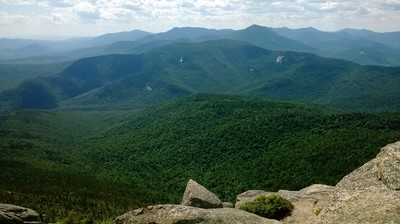


























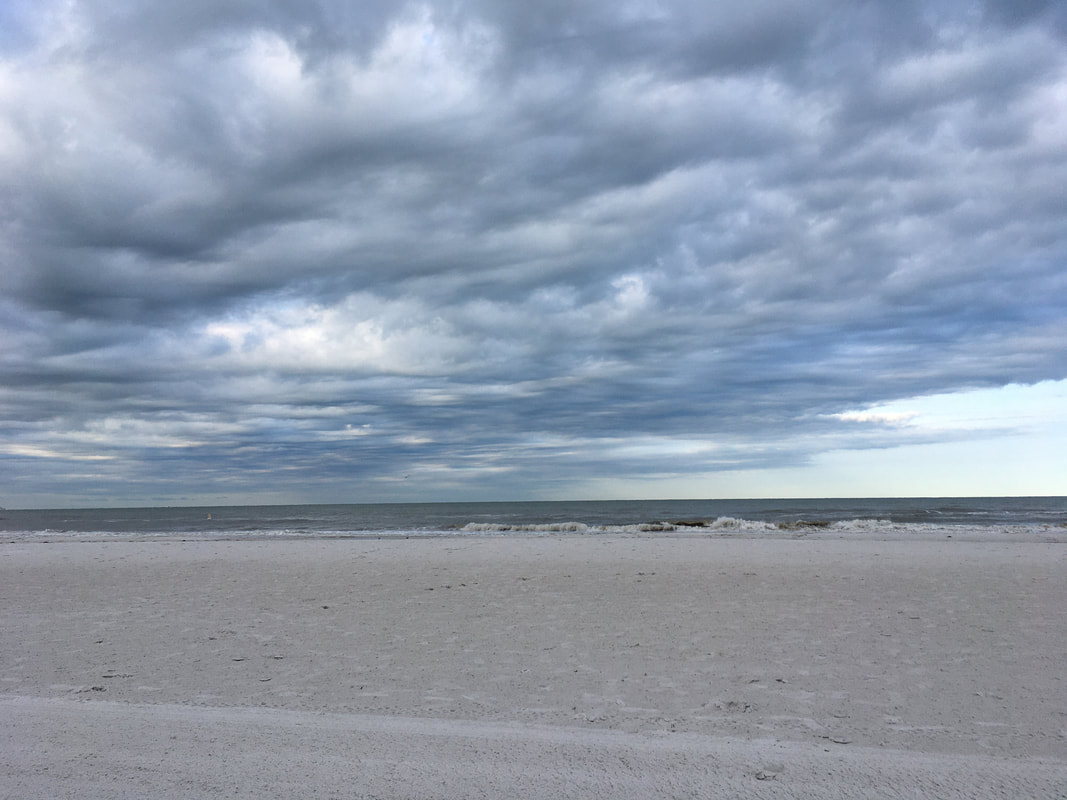

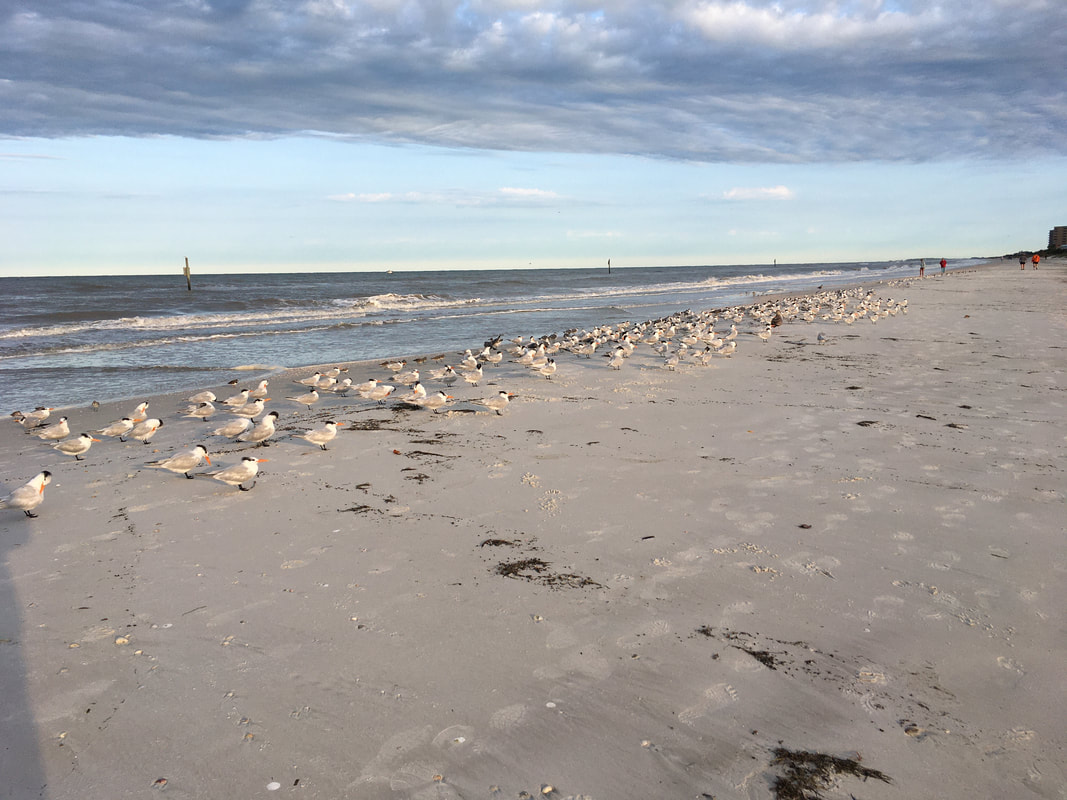


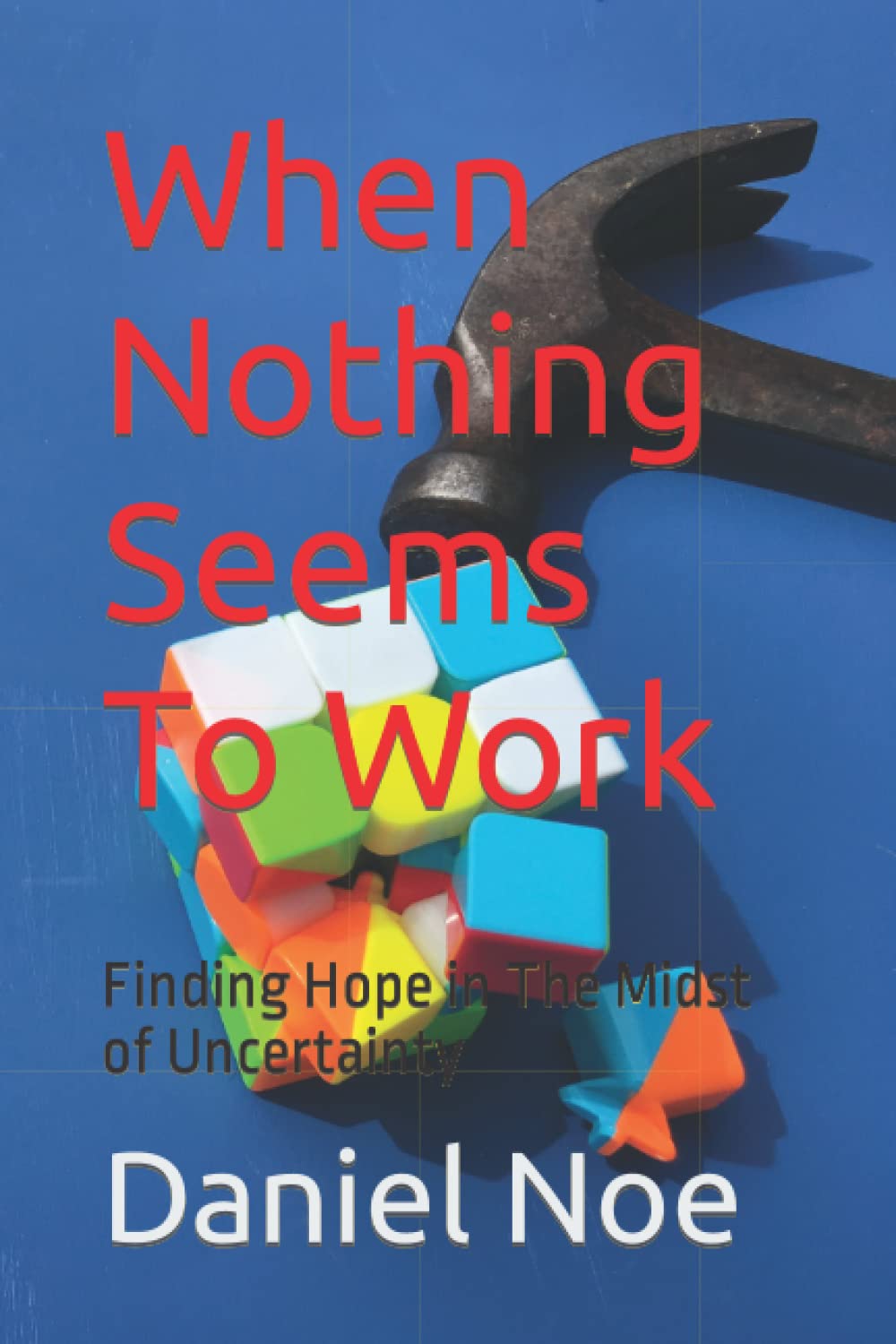






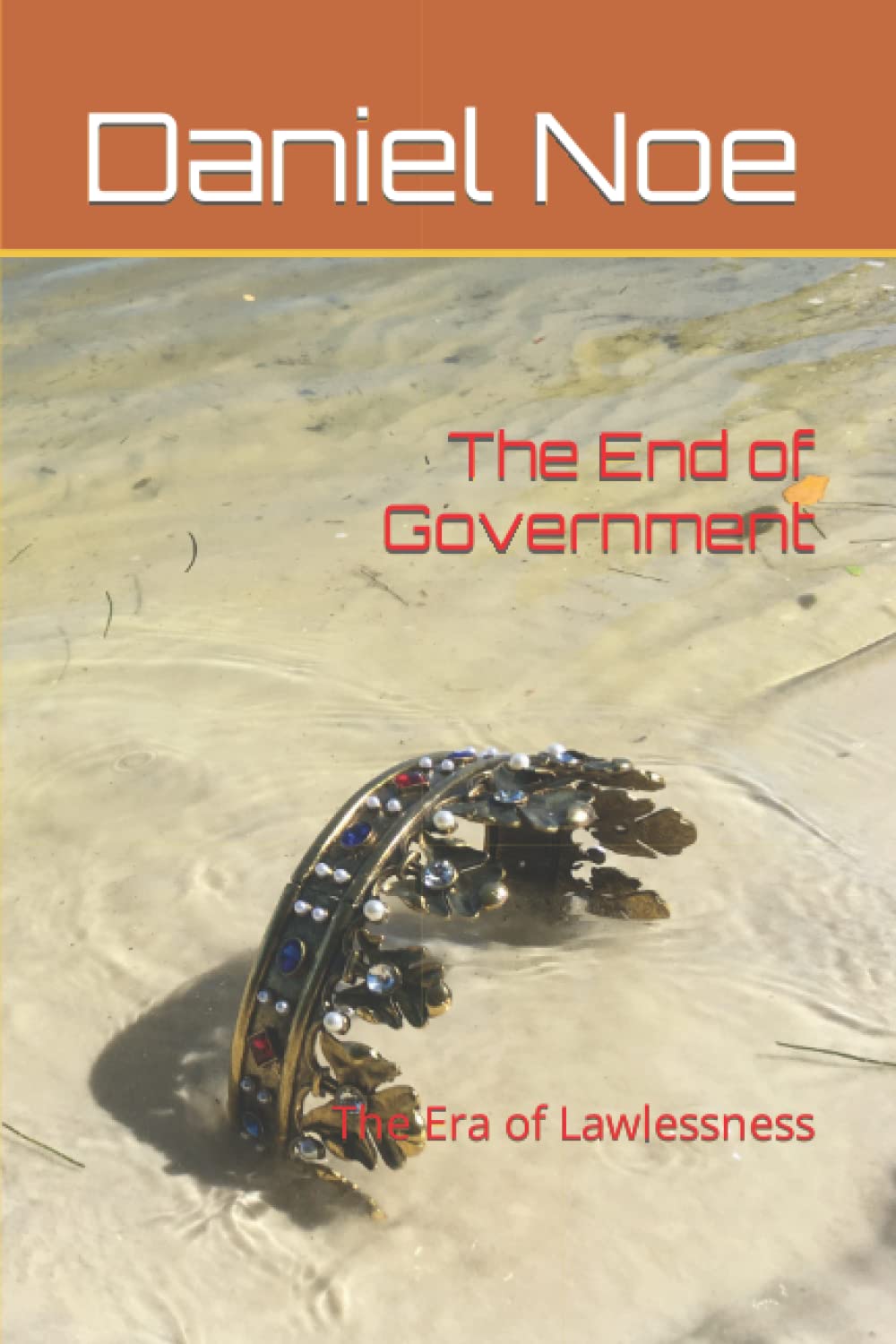
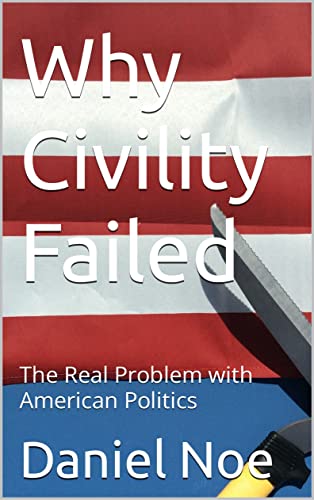
 RSS Feed
RSS Feed